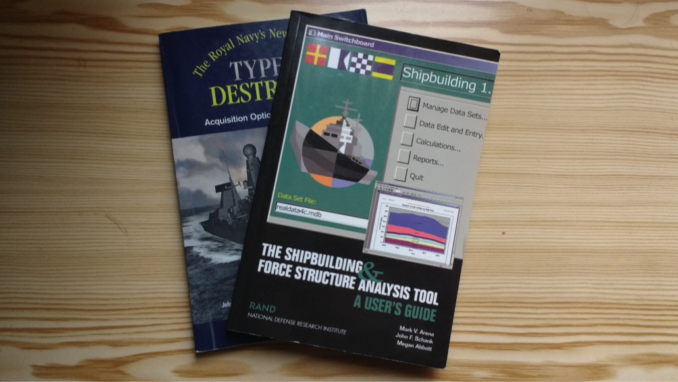
© Always Worth Saying, Going Postal 2019
We are on our way to France as a family group. We are travelling first class and the serotonin is high. I’m a ‘look out of the window’ kind of person and, as we travel the length of England on a November morn, have slipped into reminiscence.
Connoisseurs of the rich and famous will be pleased to hear that an Arab girl on the train has reminded me of an excellent pen, paper and miner’s helmet story. Confused? You will be.
That the subject of our tale was wealthy is beyond any doubt, their fame the reader will have to take on trust as, if I were to mention a real name, the tedium at my local underused aerodrome would be interrupted by a private jet disgorging big, swarthy chaps with bone saws to a taxi for my house.
Princess Fahda Bint Somebody Al Something or Other was a very pretty young woman but, by a fair measure, no longer a teenager. She had a girl next door attractiveness, assuming next door was a compound in an exclusive gated area of Riyadh. She was very pleasant and talkative and, despite her years, approached the world with a very innocent manner. More of which later.
She was very keen on tennis, attended as many Grand Slams as she could and was a VIP fixture at tournaments in or near the Gulf. The Princess visited the changing rooms, chatted to the players and not only picked up a racket but, for good measure, expected to bash a few balls at the players while they and their coaches had to pretended to enjoy having her there just before a match.
Now Fahds was in need of being immersed in the English language and carefully selected, useful parts of Western culture, if she was going to marry well. Her father, the Prince, wary of the world, preferred somewhere well away from the bright lights and temptations. You might say some internships are ‘halal’ and others ‘harem’. Out in the desert, looking at brochures, our modest northern metropolis seemed just the right kind of placement. If I may push my Arabic to it’s limit, it might even have seemed, in the proper sense of the word, ’hareem’.
Now, l hear you ask, why must a princess marry well? A history lesson. In order to unite the warring factions and create one nation on the Arab peninsular Ibn Saud married twenty seven women, each from a different tribe. Some say he had well over a hundred sons and, as was the custom in that place at that time, a number of daughters uncounted. Two or three generations later and the number of princes and princesses had swarmed and multiplied like a culture on a plate of sheep’s eyes left in the desert sun. Rather like the navy, where there are more Rear Admirals than cooks and cleaners, there was an embarrassing ubiquity to status only by title.
Worse still, her father, Prince Somebody al Something or Other had not married well. Happy, yes, children, yes, status, no. In fact he’d married a non-believer for no reason other than that unfathomable thing called love. As children often do, Fahds would not only have to live her own life, but live the gaps in her parent’s.
I can recall a jokey office memo. There will be a personality test on Monday. If you don’t have a personality then report to Personnel and you’ll be allocated one.
At this point in the narrative, dear reader, your author must allocate himself an occupation. You’ll have guessed by now that he certainly isn’t a writer. I heard a very interesting phrase the other day, ‘portfolio career’. I suppose you could argue every working life is a portfolio in that not every season of a career will be the same, even for the most loyal of salary men. There are distinctions between stages that need definition. When Charlie Watts was congratulated on thirty years in rock and roll he categorised his life’s work as five years of rock and roll and twenty five years of hanging about.
For the purpose of our narrative it’s important, and not too far from the truth, to say that your author found himself seconded elsewhere for the purpose of organising within an organisation.
You’ll recall Jim Hacker of ‘Yes Minister’ was at the Ministry of Ministerial Affairs. That excellent moniker having already been bagged, let’s place our tale in the ‘Department of Departmental Organisation’, Dodo, where your author is sat at a desk, happy as a lamb, ploughing through piles of paper relating to big sinky things for the navy.
His mighty work begins with, ‘Successive governments since the early seventeenth century have determined that national self interest is best served by being engaged in the world at the strategic level’, and continues forever, ending with a small number of easily digestible bullet points about how to keep it that way on a shoestring, or better still, by somehow not spending anything at all.
You’ll recall that Nelson told us that it takes two years to build a frigate and two hundred years to build a tradition. I would add that it might take three hundred years to understand the mathematics behind such things as shipbuilding, force structure and analysis (for the explanation of which we relied upon the Rand Organisation).
At the next desk sits Princess Fahda Bint Somebody Al Something or Other writing down everything she knows about tennis, complete with snapshots of herself with the stars, which isn’t really what the Department of Departmental Organisation is supposed to be about.
Of her domestic situation I knew nothing. She turned up on time, and left on time, which was a good start. There was rumour of an expensively converted apartment nearby (or in a neighbouring village) and of a Philippino maid and driver, for discretion checked into the country as ‘baggage’ as was the practice at the time.
On impulse your author sits beside the Princess and helps as best he can. She is woefully off topic and has a looming deadline. Your author reminds her that ‘presentation is part of the sale’ and they spend a happy afternoon putting her work into sentences, paragraphs, sections, chapters and giving it an index.
In the following weeks we fell into the habit of smiling and chatting at every opportunity and, although it was the older ladies in the office who taken her under their wing and mothered her, I was happy and surprised to find myself falling into an easy and relaxed friendship with her.

© Always Worth Saying, Going Postal 2019
One day, I was on the phone having trouble with ‘Gladys’ when I noticed Fahds standing patiently beside my desk wanting to say something.
Now ‘Gladys’ was my contact at the Rand Organisation. The Rand Organisation claim to produce digestible intelligence booklets on strategic issues. In those days they were available over the phone after consulting a catalogue. A switch board of the most sweet and obliging old ladies in California boxed up pamphlets on torture or bits of atom bomb and sent them on. For the sake of argument let’s say I’d ordered SL 1546 but they’d sent me LS 4615. For obvious reasons I can’t disclose what it was about but, if you guess that it concerned the order of battle and capability of a terrorist organisation, then you wouldn’t be too far wrong.
I offered to send it back but because of it’s sensitive nature that was fraught, so I was taking instructions over the phone. ‘Excuse me while I consult a colleague’, is always a good way to buy thinking time so I turned to Fahds.
“Have we got a shredder?”
“Of course” she replied. Correct.
“And a burn box?”, I asked.
“Absolutely”, she claimed, wrongly.
Finally, “Have you ever buried anything in lime?”
“All the time,” she tilted her head to one side and frowned as if she did it every morning before breakfast and I should have realised that.
I promised Gladys that we could securely destroy the documents and she could leave us to get on with it, to a reassuring, useful and permissive silence from the other end of the line.
I turned to the Princess and she gave her little speech. She had to go to London as an obligation to her father, the Prince, of a most sensitive nature, which, if needs be, she could explain later. She wanted to go sightseeing as well and preferred to be chaperoned by a man who was a native speaker and familiar with the capital. Would I accompany her?
Definite would.
To be continued……..
© Always Worth Saying 2019
Audio file
Audio Player



